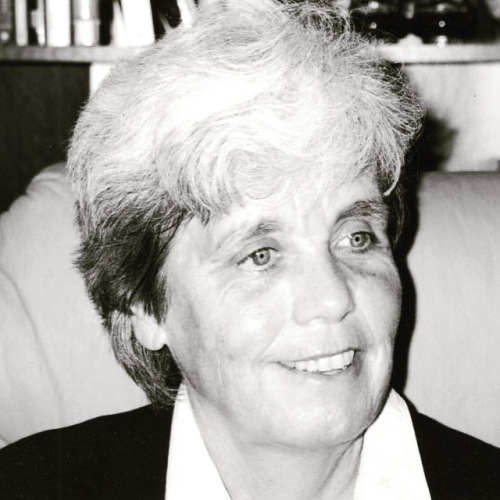I once asked Jean Abbott what made her choose the path that she chose in life. Her answer became a guiding principle in my life. She said that she was raised to believe (I believe she quoted her father here) “that the person who asks you for help is doing you a favor.” This sort of understanding radiated from her face, her voice, and her actions. There was always a gentle smile on her face, kindness and patience in her words, and a look of awe and love in her eyes. She was generous with saying I love you and when she said it, there was no doubt she meant it. (She said it to me the first time we met, when I asked her if I could do my practicum with her.)
A person like that stays with you long after your paths part, and even after she’s gone out of this life. She is A Presence and will continue to be that through the ripples of love she created with her work, her teaching, and her being.
I don’t remember the details of all that she had done in her life before founding the Center for Survivors of Torture and War Trauma. I remember there was the harboring of asylum seekers, work in South America, work in Bosnia post genocide. Working with the poor and mentally ill in STL… She didn’t seem to be afraid of the situations and people that are too incomprehensible or unbearable for most of us. How rare and extraordinary it is to meet someone like that, who despite all the atrocities she witnessed remained unjaded in her love for the world.
Jean was my first field instructor in undergrad. What a stroke of luck it was for me! Almost two decades later I can clearly feel her “love-print” in my life. I was inspired then to approach my work with the same loving-kindness as Jean. Maybe, being only a young sprout in my profession, I believed that I would automatically become like her by doing the work. I have a few more lifetimes to go before I could touch the toes of Jean Abbott.
I remember revealing to her uncomfortable feelings of resentment I felt towards one of the clients with whom I worked under her supervision. It was a disabled refugee from Afghanistan. Jean didn’t judge. She talked to me of compassion fatigue, and for the first time in my life I began to learn about self-compassion, self-care, and the importance of these to the work. I regret now, not asking her about her own journey with these things. How could she endure all that she took upon herself? What kept her going all these years? I regret not talking to her about her faith. I assume that her faith had something to do with her ability to take on so much suffering. I found it interesting that as a Catholic nun, she didn’t mention her religion, unless I brought it up. She simply practiced the core of what she believed. To me, she was not a follower of the church, but more of a rebel – living her life less as a “Christian”, but more of a Christ-like person.
As a teacher, she was all hands on, which is what I needed and wanted. She chuckled when I told her that I was behind on my reporting. That little chuckle and a comment about the importance of the work vs. the trail back to it, reassured me for the rest of my career. I don’t remember much talk about clinical literature, theories, or philosophies. She allowed me (then an unexperienced undergrad student) to design an experimental therapeutic group for female survivors of war and torture from Afghanistan. I didn’t know what I was doing. She corrected me without making me feel corrected. It’s hard to explain. Even though I was leading most of the group activities, Jean was the true humble leader. She was the kind of clinician that I aspired to become I could see and feel the healing that happened in her presence. I have yet to encounter a scholarly, peer reviewed piece of literature that could describe or instruct the work of healing as accurately as Jean did by simply being who she was.
As I write this, I cry with overwhelming gratitude for the short time I spend with you, Jean. Peaceful travels to you, dear teacher. I love you.

1 Comment